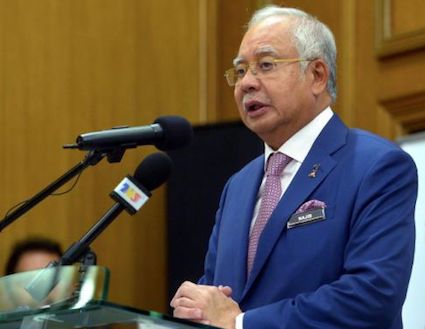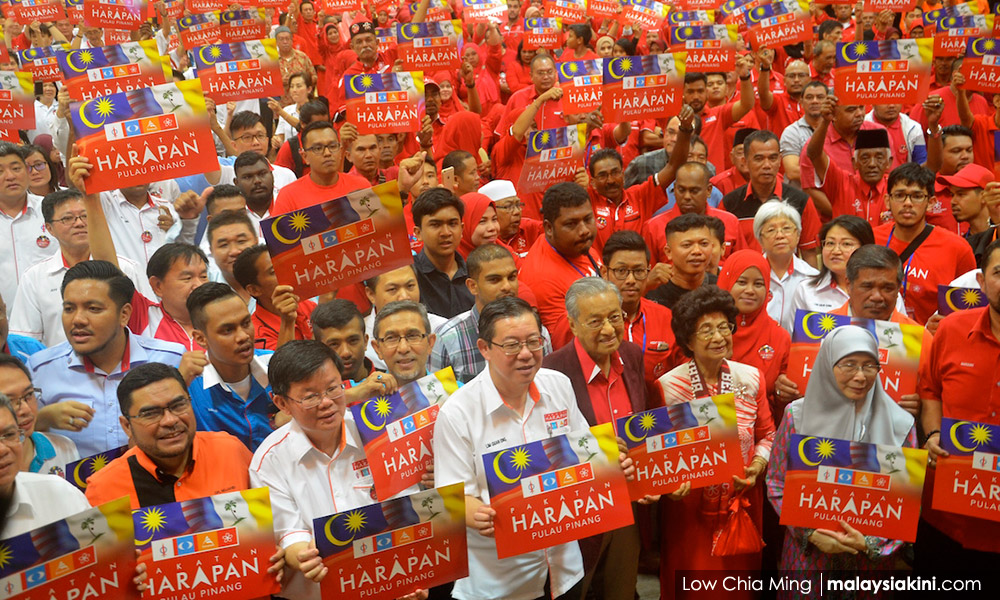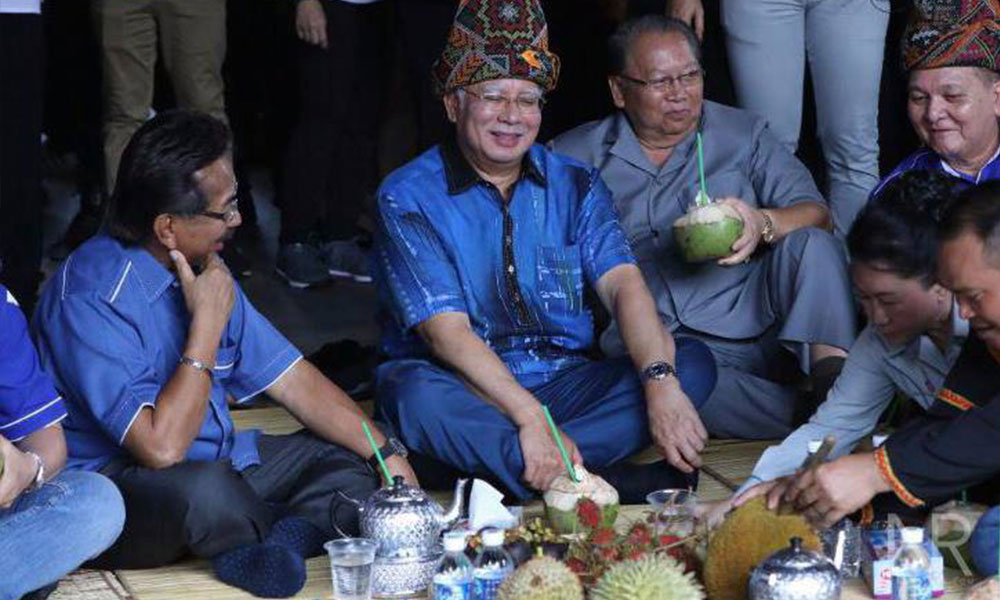BN, Najib have upper hand in GE14, say analysts

(Bernama) – BN and Prime Minister Najib Abdul Razak clearly have the upper hand in the coming 14th general election (GE14), according to two prominent political analysts.
Associate Prof Dr Jeniri Amir of Universiti Malaysia Sarawak said voter sentiment towards Pakatan Harapan opposition front was on the decline in the past one year, while the internal crisis within its component parties, especially on the allocation of seats, could worsen as the GE, expected to be held within the next three months, draws nearer.
Prof Dr Sivamurugan Pandian of Universiti Sains Malaysia said with a much more fractious opposition now as PAS was going it alone this time, compared with a united front against the BN in the previous two elections, there would no longer be straight fights in most constituencies and voter sentiment would work to the advantage of BN.
“On the other hand, voter perception and opinion of the government has steadily improved because of its commitment to solving the people’s problems, like housing, economy, education, cost of living and job opportunities,” Jeniri said.
“I strongly believe Najib will lead the BN to a comfortable win this time, despite consistent attacks from former prime minister Dr Mahathir Mohamad and the opposition. Compared with the last few years, the BN and Najib are now in a more solid position to be re-elected,” he added.

And with the opposition vote split between PAS and Pakatan Harapan, the BN, particularly Umno, would win the bulk of the rural seats and therefore win the election, the analyst said.
“BN even has a good chance of regaining a two-thirds majority with the three-cornered fights now expected to prevail in GE14 and the bill on redelineation of election boundaries due to be passed by Parliament next month,” Jeniri said.
His confidence in the BN reclaiming the threshold two-thirds majority in Parliament that the ruling coalition lost in the 2008 and 2013 elections was similarly shown in the outcome of a public opinion poll conducted recently by the Merdeka Center, an independent pollster.
After all, the analysts and Merdeka Center argued, the BN is only 13 seats short of a two-thirds majority.
Sivamurugan said the BN had become stronger since 2015, after a brief leadership crisis in Umno when Najib had to drop then deputy president and deputy prime minister Muhyiddin Yassin and vice-president Shafie Apdal from the cabinet.
“The prime minister has consolidated his position since then, based on the strong support within Umno,” he said.
He pointed out that Malay votes in GE14 would see a five-way split among Umno, PKR, PAS, Amanah and PPBM, but Umno would still have the upper hand, especially in the rural constituencies that made up the bulk of the 222 parliamentary seats.

Sivamurugan said Sabah and Sarawak would remain the bastion and “fixed deposits” of BN supporters as they did in the previous two polls, bolstered by Najib’s strong image in the two politically strategic states as the prime minister who genuinely cares for their well-being.
Jeniri concurred, saying that being still largely rural states, the narrative of politics of development was still relevant in both Sabah and Sarawak, adding that during election time, rural voters were more concerned with bread and butter issues.
“I strongly believe it is impossible to win a general election in Malaysia without winning Sabah and Sarawak and rural seats,” he said.
Despite persistent attacks by Mahathir and other opposition leaders in exploiting the 1MDB issue, Jeniri said it did not gain any traction among voters in the rural areas.
He said that like in 2008 and 2013, the opposition again was portraying a confident image in the run-up to the next election but in reality, as GE14 became closer, the situation for its component parties was getting more complicated, compared with previously.
“Opposition parties are nowhere nearer to an electoral pact. In fact, they are still quarrelling about the allocation of seats,” said Jeniri.
As Jeniri sees it, GE14 boils down to the choice between a country to be led by Najib or Mahathir, who is now leading the Pakatan Harapan front.
“Are you telling me that Malaysians want to be ruled by a 93-year old leader who was given the opportunity by BN and Umno to lead the country for 22 years? What can he do for one or two years as PM?” Jeniri asked.
“To bring Malaysia to the future, voters have to choose wisely. The stakes are high and this is not a game or an experiment. There is no point in crying over spilled milk. Just look at the Brexit case (in Britain) and also the voters in the US over Donald Trump. Now they regret, but it’s too late.
“Do our voters want to go back to the Mahathir era or do they want to be led by a visionary and dynamic leader who is committed to bring Malaysia to a higher level?” he asked.

